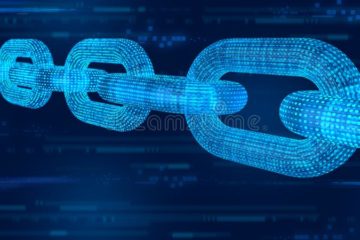Data Loss and Beeping Sound in Your Hard Drive

By Kiran Bista July 06, 2023
Experiencing a beeping sound from your hard drive can be a cause for concern, especially when it is not being recognized by your computer. This article aims to explore the reasons behind the beeping sound in both external and internal hard drives, providing insights into the causes and potential solutions. It is important to note that attempting DIY solutions for complex data loss scenarios is not advisable, and seeking professional assistance is highly recommended.
Reasons for External Hard Drive Beeping:
- Broken Ports or Cables: Frequent plugging and unplugging of external hard drives can lead to faulty cables or broken ports. A simple issue like a broken contact point on the USB header can cause the drive to beep and not function properly.
- Broken, Stuck, or Jammed Heads: The read-and-write heads of a hard drive, responsible for accessing data from the spinning disks, are sensitive and have little fault tolerance. If these heads become misaligned or damaged, the drive will be unable to read or write data, resulting in the beeping sound.
- Seized Up or Stuck Motors: The motor in a hard drive powers the spinning magnetic disk. If the motor jams or does not receive sufficient voltage to spin, the hard drive will beep as it cannot operate without the motor. Motor failure is more common in older hard drives and can be challenging to repair.
4. Short PCBs: The Printed Circuit Board (PCB) in an external hard drive regulates the flow of electricity to and from various components. If the PCB shorts out, it can cause an electrical malfunction that may result in the drive beeping and becoming irrecoverable.
Reasons for Internal Hard Drive Beeping:
1. Bad Sectors on the Drive: Internal hard drives can develop bad sectors, which are compromised
areas that cannot be read or accessed properly. While bad sectors can often be fixed at home, if the drive is beeping, it may indicate a more severe problem that requires professional intervention to prevent data loss.
2. Drive Overheating: The enclosed environment of a computer case can lead to overheating of internal components, including the hard drive. Modern hard drives have temperature sensors that can shut down the drive when it exceeds a certain threshold to prevent damage.
3. Power Issues: Inadequate or excessive voltage supplied to the internal hard drive can cause malfunctions, resulting in beeping sounds. It is important to ensure the proper power supply to the drive and seek professional assistance if power-related issues are suspected.
When faced with a hard drive beeping and not being recognized, it is crucial to consider the value of your data and refrain from attempting DIY solutions. It is important to address the issue promptly to prevent further damage and potential data loss. Here are some steps to address the hard drive beeping:
- Safely Disconnect the Drive: If your hard drive is connected to a computer or any other device, safely disconnect it by following the proper removal procedure. This ensures that no additional damage occurs during the troubleshooting process.
- Determine the Cause: Identifying the cause of the beeping sound can help in determining the appropriate solution. The most common causes include broken ports or cables, malfunctioning components (such as heads or motors), bad sectors, overheating, or power issues.
- Check the Connections and Cables: Inspect the connections between the hard drive and the device it is connected to. Ensure that the cables are properly plugged in and not damaged. If using an external hard drive, try using a different USB port or cable to rule out any connection issues.
- Test on a Different Device: Connect the hard drive to a different computer or device to see if it exhibits the same beeping behavior. This helps determine if the issue lies with the hard drive itself or the original device it was connected to.
- Listen to the Beeping Pattern: Pay attention to the beeping pattern and duration. Different patterns can indicate specific issues, such as a repetitive short beep or continuous beeping. Take note of these patterns as they can assist data recovery professionals in diagnosing the problem.
- Avoid DIY Solutions: Unless you have experience and expertise in data recovery, it is advisable to avoid attempting DIY solutions. Opening the hard drive or making further attempts to fix it without proper knowledge can lead to irreparable damage and permanent data loss.
- Seek Professional Assistance: Contact a reputable data recovery service provider or consult with a professional technician who specializes in hard drive repairs. These experts have the necessary skills, tools, and expertise to diagnose and address the specific issue causing the beeping sound. They can perform professional data recovery or repair the hard drive if needed.
8. Backup Important Data: If possible, backup any important data stored on the hard drive before seeking professional assistance. This ensures that you have a copy of your important files in case data recovery becomes challenging or impossible.
Remember, it is crucial to act quickly and seek professional help when dealing with a beeping hard drive. The longer the issue persists, the higher the risk of permanent data loss. The beeping sound from a hard drive, whether external or internal, indicates underlying issues that require prompt attention. Causes such as broken ports, damaged heads, motor failures, bad sectors, overheating, and power issues can all contribute to the beeping sound. To prevent further damage and potential data loss, it is crucial to seek professional assistance from data recovery experts who can provide the necessary solutions and recover your valuable data.
Hard Drive Recover with professionals can help you recovery data in the safest way possible. eProvided is a data recovery company serving since 1999 in Las Vegas.
sooperarticles.com







No Comment